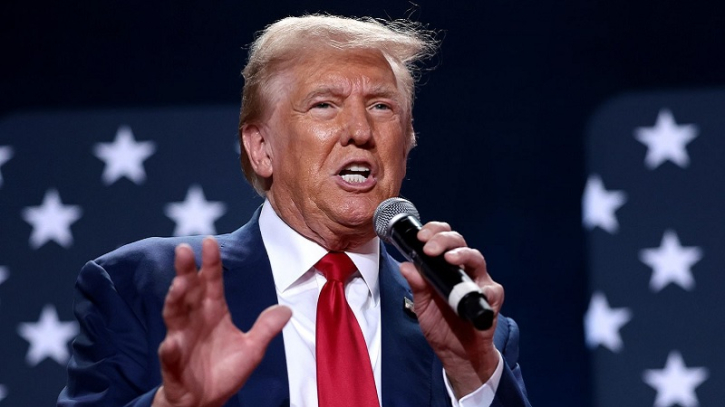AI Power Clash: Federal vs. States in Trump’s Tech Ban

Published : 17:51, 29 June 2025
A section of Trump’s sweeping legislation includes a proposed 10-year federal ban on state-level AI regulations. Supporters claim this move ensures consistency across the U.S., helping to attract global investment and foster innovation.
However, critics argue the ban infringes on state authority and undermines privacy protections. Some lawmakers have proposed amendments to strike this part from the bill, seeking to restore states' rights in managing AI oversight.
Elon Musk Blasts Trump Bill as Economic Disaster
Tech mogul Elon Musk voiced strong opposition to the bill, labeling it as harmful and warning of dire economic consequences. He claimed the proposal would endanger millions of jobs and undermine national interests. Musk suggested the legislation could alienate voters and prove disastrous for the Republican Party’s political future.
Narrow Senate Vote Pushes Trump Bill Forward
In a closely contested vote, Senate Republicans moved forward with Trump’s comprehensive legislative package. Despite internal divisions, the bill advanced with a 51–49 margin, overcoming an initial procedural vote. The legislation includes broad tax cuts, military aid, immigration enforcement funding, and significant reductions in welfare spending. Debate continues as lawmakers prepare for a lengthy amendment process.
Republicans Force Through Trump’s Budget Bill Start
Following extended negotiations, Republican senators pushed through the first major test of Trump’s legislative centerpiece. Concerns over cuts to healthcare, green energy incentives, and tax deductions triggered revisions to soften the blow. Adjustments include delayed provider taxes and the creation of a multi-billion dollar rural hospital fund. The bill still faces tough debate ahead of its final vote.
The Political and Policy Implications of Trump’s Advancing ‘Big, Beautiful Bill
The progression of Trump’s “Big, Beautiful Bill” through the Senate reveals deep ideological fractures within the Republican Party and underscores the complexity of balancing populist ambition with policy pragmatism. While the bill aims to consolidate major conservative priorities—such as tax cuts, military spending, and welfare reductions—it does so at the expense of intra-party cohesion and broader bipartisan support. The narrow vote margin and vocal dissent from figures like Elon Musk highlight significant concerns about the bill’s long-term economic and social consequences.
Moreover, the inclusion of sweeping federal controls, such as the AI regulation moratorium, raises critical questions about federalism and the erosion of state autonomy. This centralization approach, though intended to streamline innovation policy, may backfire politically, especially among traditional conservatives who value state sovereignty.
Taken together, the bill serves as both a symbol of Trump’s enduring influence over Republican policy and a test case for how far the party is willing to go to implement a unified agenda. As debates unfold, the fate of this legislation may set a precedent not only for the 2025 legislative landscape but also for the direction of conservative governance in the coming years.
References: Fox News, The Guardian, Reuters, Time
BD/O











